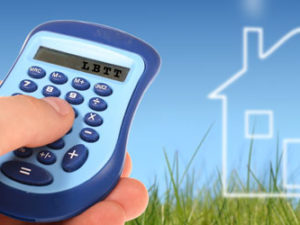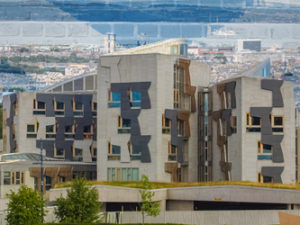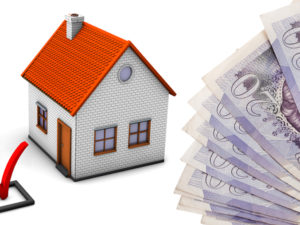
Stamp Duty is no more in Scotland, but before homebuyers get too excited, it has been replaced Land & Buildings Transaction Tax (LBTT). To help you get familiar with the new system, here’s an in-depth look at who pays what, and what its impact on the market is likely to be.
The New Tax Bands
LBTT is applied to residential property sales in Scotland and is paid by the buyer. The rate of tax depends on the selling price of the property. There are five bands:
| £0 to £145,000 | 0% |
| £145,001 to £250,000 | 2% |
| £250,001 to £325,000 | 5% |
| £325,001 to £750,000 | 10% |
| Over £750,000 | 12% |
Under LBTT, the rate of tax is only applied to the portion of the selling price over each band. For example, if you buy a property for £350,000 the total tax bill is:
(2% x 105000) + (5% x 75000) + (10% x 25000)
= £8,350
Who Wins and Loses?
Anyone buying a home for £125,000 or less will be unaffected by the move to LBTT. They paid no tax before and that is still the case. Those buying a home for between £125,000 and £145,000 now pay no tax too.
If you are buying a home for between £145,000 and £333,000 then you’ll pay less tax with LBTT than you would have done with Stamp Duty. If you are buying a home for more than £333,000 you’ll pay more tax now than you would have done previously.
Impact on the Market
In practise, as most property sales are for less than £333,000, most people will pay less tax. Even in Edinburgh where house prices are higher than in most parts of Scotland, about 80% of homes are sold for less than £300,000.
That said, if you’re looking for a family home in the Capital you may well find yourself facing a substantially larger tax bill. Roughly half of the three and four bedroom houses coming to the market last year were valued at £300,000 or more, with one in four valued at over £400,000. Prior to the introduction of LBTT, somebody buying a home for £400,000 in Scotland would have faced a Stamp Duty bill of £10,000. Under the new LBTT system that figure stands at £13,350 – an increase of £3,350.
This figure needs to be paid up front and can’t be spread over the lifetime of a mortgage, and given the size of the increase, it is reasonable to assume that there will be a period of adjustment in the market over the coming months.
Many home movers at this end of the market are not ‘cash rich’ and these buyers will either have to save a little longer to cover the additional tax bill, or look to slightly more affordable areas of the city. Thereafter we should see things settle down again as buyers adjust to the new norm but, in the short term at least, it’s likely that sellers of larger homes will find the market a little less buoyant than has been the case over the last 12 months.
On the other hand, the reduction in tax on more affordable homes is likely to provide a boost to activity here. A buyer of a £135,000 home would have had to pay £1,350 under Stamp Duty, but under LBTT they won’t have to pay any tax. In recent years saving the money required to cover mortgage deposits and Stamp Duty have been a significant hurdle for many potential buyers so this will be a real help for many people looking to get onto the property ladder.
More Information
If you’re thinking of buying or selling and have any questions about LBTT or any other aspect of the buying process, please feel free to get in touch with us today on 0345 646 0208 and one of our friendly, experienced team will be delighted to help.
















